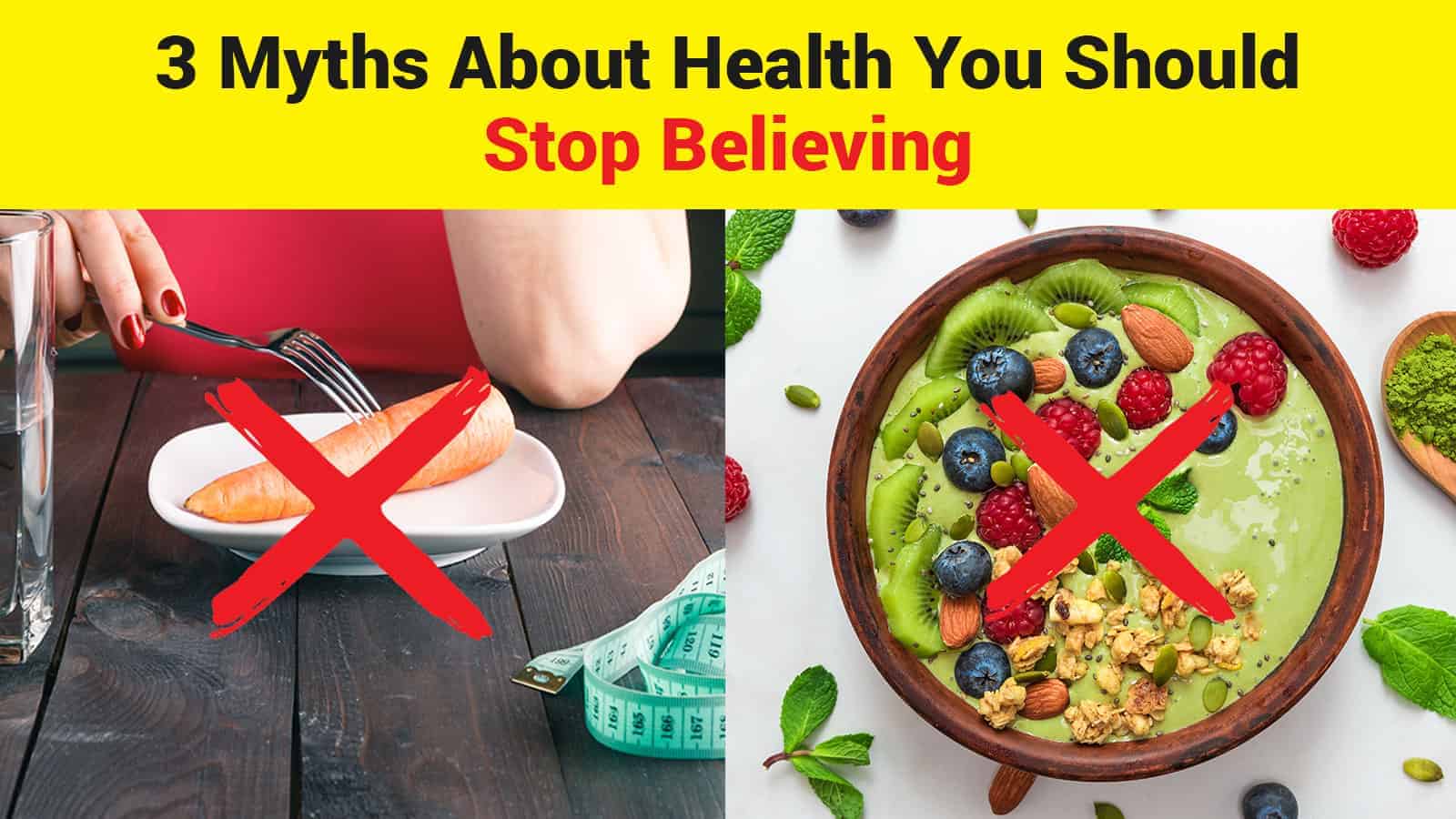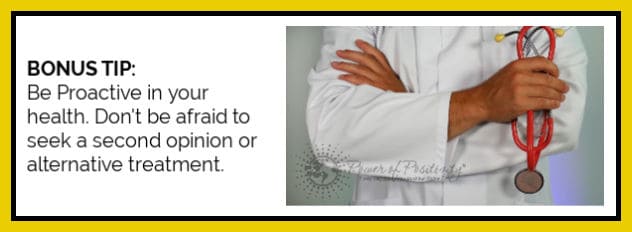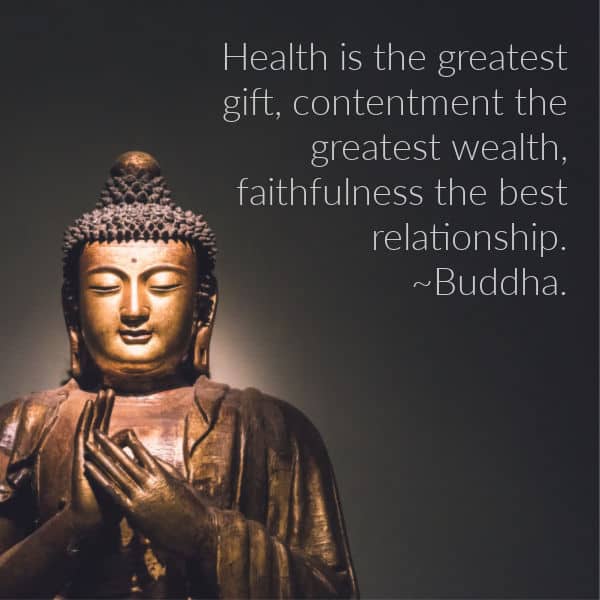Few aspects of life are as confusing as health in this day and age. Every time we turn on the TV, commercials for different weight loss programs fill our ears with conflicting information. Wellness “gurus” on social media all claim to have the secret formula as a way to attract followers.
Luckily, health is much more ambiguous than we’re often led to believe. Despite what your favorite influencer might have to say, no magic superfood exists that has the power to cure any ailment. Conversely, there isn’t a single food that – when consumed in moderation as part of a balanced diet – causes disease.
When you peel back the many layers, it becomes apparent that many claims in the world of health and wellness are utterly unfounded. Looking through an evidence-based lens reveals many myths that have no basis in science.
WHAT DOES IT MEAN TO BE HEALTHY?
Ah, the million-dollar question. Discovering the answer unlocks the door to eternal happiness, longevity, and success…right? If only it were that simple. The truth is that every single person has a unique pathway to becoming their healthiest self. Frustrating as that might sound, how different we all are is such a beautiful thing.
In the dictionary, health is defined as “the state of being free from illness or injury.” What a simplistic explanation for something that often seems so far out of reach! Recognizing how basic of a statement it puts things into perspective and acknowledges what being healthy truly means.
Health isn’t the most expensive collagen powder money can buy. It isn’t participating in every wellness trend, such as sugar detoxes, juice cleanses, and low-carb diets. True healing involves eating, moving, and overall going about life in a way that allows our freedom. As it turns out, stepping into the best version of yourself shouldn’t be a complicated or confusing journey.
WHY IS HEALTH SUCH A CONTROVERSIAL TOPIC?
We can sum this up in one short word: money. Today, knowing who to trust might as well be rocket science. Even published scientific studies are often biased due to sponsorship by food or drug companies.
Social media is an even more toxic entity. Posts are primarily unregulated, so people are free to pass their opinions off as fact and fool millions of vulnerable viewers. With the rise of branded content, the validity of information is even more inaccurate since influencers are being paid to promote products.
The real danger is when health professionals, such as functional medicine doctors, illicit fear-mongering on their social platforms. Individuals who should be sharing nothing but evidence-based research do just the opposite for publicity’s sake. These people will go to whatever lengths are necessary to gain followers and therefore sell more supplements or diet protocols.
For most of us with no severe illnesses, going back to the basics: nourishing food, adequate hydration, joyful movement, and stress reduction is all it takes. After all, obsessing over being healthy is one of the unhealthiest things you can do.
3 MYTHS ABOUT HEALTH YOU NEED TO STOP BELIEVING
-
It has to be restrictive.
It’s easy to understand why so many people believe this lie. Everywhere we look, a different weight loss program is touting itself as the unique key to health and longevity. Transformation photos showcase remarkable results achieved by dedicated followers. People rave about how their skin is glowing, and they feel ten years younger.
So what do all these diets have in common? A caloric deficit. Pick your poison: keto, paleo, intermittent fasting, or any of the numerous other fads out there today. Weight loss appears effortless on all these plans because they either eliminate entire food groups or restrict one’s eating window.
To lose weight, of course, you must burn more calories than you take in. This can be achieved by eating the foods you genuinely enjoy rather than following a diet to which adherence is difficult.
Better yet, why not ditch the weight loss goals and focus on merely adopting more healthful behaviors instead? 95% of diets fail, and it isn’t because people lack willpower. The human body is brilliant in that it drives us to compensate for restriction, whether perceived or overt. Yes, even mentally denying yourself permission to eat certain foods causes the body to feel starved. (1.)
Allowing all foods while exercising moderation and enjoyably moving your body is the best method for long-term weight loss. The best part? No calorie counting or stepping on the scale required.
-
It requires a lot of money.
Health can be expensive, but it certainly doesn’t have to be. Spending any length of time in the wellness corner of Instagram seriously skews our perception about this. Smoothies loaded with every adaptogen out there, fancy nut butters that cost upwards of $20 a jar…the list goes on.
Influencers and companies lead us to believe that these things are necessary to lead a healthy lifestyle. That couldn’t be any farther from the truth. In fact, health, as it’s defined, is fairly simple. Remember those three pillars – real food, exercise, and stress management – we discussed earlier?
Don’t be discouraged if you can’t afford every single product on social media. These people get paid to push the false narrative that you must follow all the wellness trends to be healthy. Starting somewhere is better than never getting started at all. Cooking meals at home that primarily consist of plants, drinking good quality water, sleeping enough, and minimizing stress is a good baseline.
All the fancy powders and supplements should be considered extras. Once you have a solid foundation, feel free to start incorporating additions like these slowly. Remember, no need to do everything at once – or ever, for that matter. If it fits into your budget, pick it up! If not, don’t sweat it. We would argue that making your journey to health stressful negates any supposed benefits the products have.
-
It looks the same for everybody.
Just like we all naturally have different skin colors, heights, and body sizes, everyone’s dietary needs are distinctly unique. This is due to something known as “bio-individuality.” Bio-individuality means that each person’s genes, hormones, body composition, and many additional factors determine nutrition, exercise, and supplement requirements. (2.)
In other words, there is no one-size-fits-all approach to health. This is yet another reason why you should not accept anything on the Internet or in a diet book as fact. Qualified healthcare professionals are the only people whose recommendations you should follow, and only after a thorough evaluation.
Integrative nutrition understands that what nourishes one person’s body can poison someone else’s. An obvious example would be in the case of celiac disease. Those suffering from this disorder must avoid gluten due to a protein called zonulin. In celiac patients, zonulin causes the tight junctions surrounding the gastrointestinal tract to open. As a result, leaky gut – or the spillage of undigested food matter into the bloodstream – occurs. This inflammation quickly impacts the entire body and can lead to a host of additional ailments.
For otherwise healthy individuals, however, gluten can be an extremely robust component of a balanced diet. Many ancient, sprouted grain products contain gluten, in addition to fiber and many other beneficial nutrients.
Autoimmune disease
Bio-individuality can also apply in more subtle situations. Let’s look at nightshades, or a group of vegetables, including tomatoes, eggplants, and potatoes. People struggling with autoimmune disease are encouraged to avoid these crops for several reasons. (3.)
- Firstly, they contain chemical compounds called alkaloids and lectins. Alkaloids have the potential to increase immune response, which is the opposite of what these patients need. Lectins, or anti-nutrients, are present in all plants but more highly concentrated in nightshades. They can be gut irritants in those already suffering from inflammation.
- The second reason has to do with Vitamin D. Nightshades have an incredibly potent form of Vitamin D, which prevents the proper metabolism of calcium. This form gets deposited in the body’s soft tissues rather than the bones, which can prove especially dangerous for people with rheumatoid arthritis.
FINAL THOUGHTS ON MYTHS ABOUT HEALTH YOU SHOULD STOP BELIEVING
We live in a world always in search of the next best thing, especially when it comes to health. Everybody wants to believe there’s one superfood, protein powder, or supplement that can elevate us into our happiest, best versions of ourselves.
Unfortunately, the truth is not quite so simple – although as it turns out, that’s a fantastic thing. Health looks different on everyone, and that is partially because its meaning varies significantly across the population. For some, health might be about fitting into that dress they haven’t worn in years. Others may have values that have nothing to do with weight, instead of focusing on internal balance.
Additionally, every human has different nutritional, exercise, and supplement requirements because we each have our unique makeup. Health is not a one-size-fits-all approach, and that’s what makes it so fascinating.















 Community
Community

